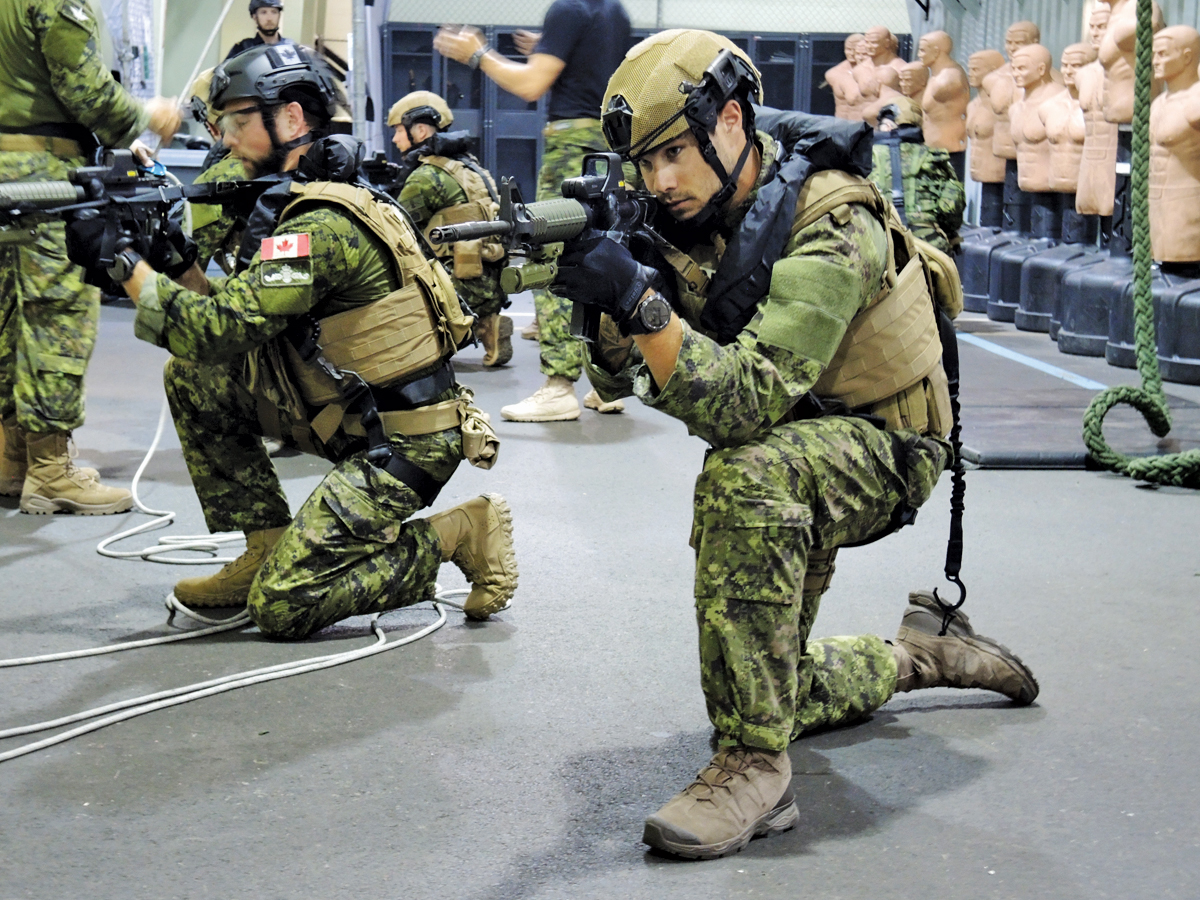Divers prepare for Guam exercise
By Lookout on Aug 07, 2019 with Comments 0

Clearance divers practice an all-around defensive posture with C8 carbine rifles in preparation for a multi-national training exercise with the U.S. Marines in Guam later this month. Photo by Peter Mallett, Lookout
Peter Mallett, Staff Writer ~
Clearance Divers from Fleet Diving Unit (Pacific) are making final preparations for a multi-national training exercise in Guam.
Eight personnel from the dive unit and two from Fleet Diving Unit (Atlantic) will head to the U.S. territory in August for Exercise Hydracrab.
The 12-day exercise involves approximately 100 military personnel and is being hosted by the U.S. Navy Explosive Ordnance Disposal Mobile Unit Five.
Hydracrab also involves units of the U.S. Navy, Air Force and Marines, two clearance diver teams from Australia, and one team from New Zealand.
The purpose of the exercise is to give military personnel greater experience in improvised explosive device (IED) disposal near port and jetty facilities, and coordinating those efforts with other nations, says Lt(N) Sebastian Harper, FDU(P) Operations Officer.
“It’s very important for us to know how to work with our allies and have a common procedural understanding before a conflict breaks out,” says Lt(N) Harper, who will be Officer in Tactical Command of the Canadian contingent. “It helps us find common ground and will make things more predictable when they need to rely on us in a real-life situation, and vice versa.”
Fleet Diving Unit members will act as an IED support unit during the exercise. The team will be pushed to their limits, rendering safe IEDs in a high tempo semi-permissive maritime environment, says Lt(N) Harper. They will also assist specially trained boarding parties from the Marines to defuse IEDs during operations involving smuggling, interdiction, and other scenarios.
Some of the biggest hurdles to overcome for multi-national training exercises such as these often occur well before boots are on the ground, says Lt(N) Harper.
“Getting our personnel and equipment to these locations can be challenging. Knowing how to move to a location quickly and efficiently will mean that we can react to an international conflict in short order.”
Lt(N) Harper says the team will arrive in Aug and, due to the extreme climate, will need time to acclimatise before they start their work. Their equipment, which will meet them there, will include dismounted IED tools, air diving equipment, and personal defence weapons.
Filed Under: Top Stories
About the Author:





